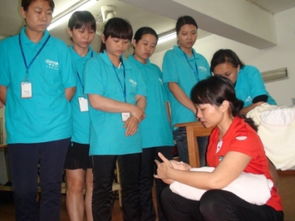月嫂合同最新范本
Title: Understanding and Crafting a Comprehensive Postpartum Care Contract Between a Maternity Nurse and a Maternity Care Agency
Postpartum care, commonly known as "yuezi" in Chinese culture, is a crucial period for both the mother and the newborn. Maternity nurses, also referred to as "yuesao" or "yuesao gongsi" (maternity care agency), play a pivotal role during this time by providing essential support and assistance to the mother and the family.
1. Scope of Services
This section outlines the specific duties and responsibilities of the maternity nurse. It typically includes:
- Maternal care: Assisting with breastfeeding, providing postpartum massages, and monitoring the mother's physical and emotional wellbeing.
- Infant care: Bathing, feeding, and soothing the newborn, along with educating parents on newborn care practices.
- Household chores: Light housekeeping duties such as cooking nutritious meals, laundry, and tidying up the living space.
2. Work Schedule

Clear guidelines regarding the working hours, rest periods, and any overtime arrangements should be specified in the contract. Flexibility in scheduling may be required to accommodate the needs of the mother and the newborn.
3. Compensation and Benefits
This section outlines the financial arrangements between the maternity nurse and the agency. It includes:
- Hourly, daily, or monthly rates of pay.
- Payment schedule and method.
- Additional benefits such as transportation allowance, accommodation, and bonuses.
4. Termination Clause
Terms under which either party can terminate the contract should be clearly stated. This includes notice periods, reasons for termination, and any associated penalties or consequences.
5. Confidentiality Agreement
Maternity nurses may have access to sensitive information about the family. A confidentiality agreement ensures that all personal and medical information remains confidential and is not disclosed to third parties.
6. Code of Conduct
Expectations regarding professionalism, communication, and behavior should be outlined in this section. This ensures a harmonious working relationship between the maternity nurse, the family, and the agency.
1. Consultation and Customization
Contracts should be tailored to meet the specific needs and preferences of both parties. It's essential to consult with the maternity nurse and the agency to ensure that all requirements are addressed.
2. Legal Review
It's advisable to seek legal counsel to review the contract and ensure compliance with relevant labor laws and regulations. This helps prevent any disputes or legal issues in the future.
3. Clarity and Transparency
Use clear and concise language to avoid any misunderstandings or ambiguities. Be transparent about expectations, obligations, and rights to foster trust and mutual respect.
4. Flexibility and Adaptability
Recognize that circumstances may change during the postpartum period. The contract should include provisions for adjustments or modifications as needed, with mutual agreement from both parties.
A wellcrafted postpartum care contract between a maternity nurse and a maternity care agency is essential for establishing clear expectations and ensuring a positive experience for both the caregiver and the family. By addressing key components and following guidelines for customization, transparency, and flexibility, parties can enter into a mutually beneficial agreement that promotes the health and wellbeing of the mother and the newborn.
This HTML document provides a comprehensive overview of the key components of a postpartum care contract between a maternity nurse and a maternity care agency, along with guidelines for crafting such a contract.









